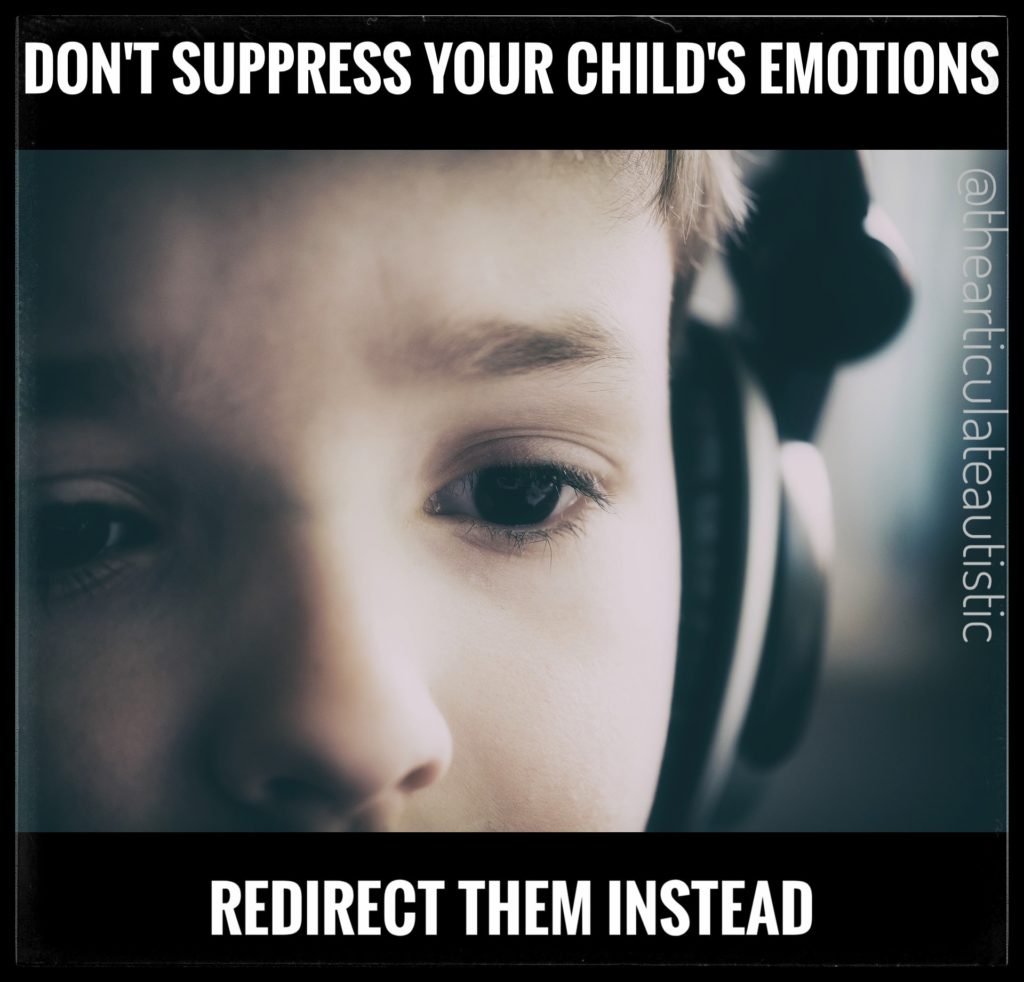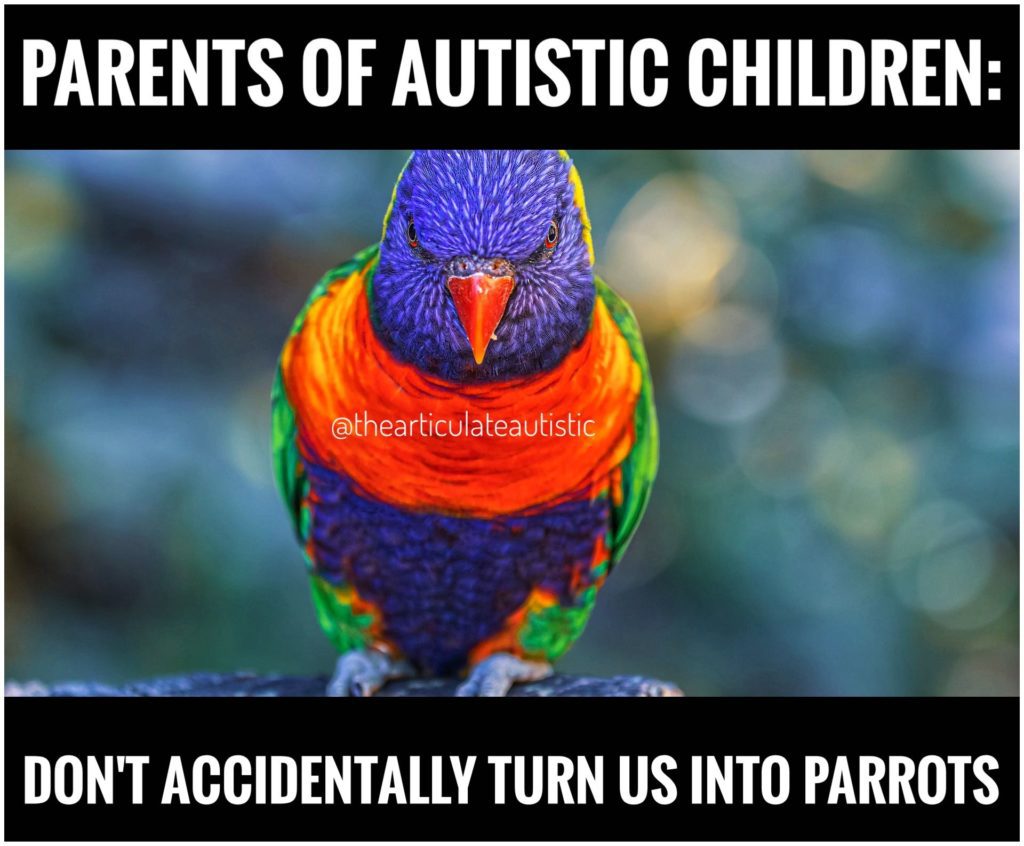Don’t Suppress Your Child’s Emotions, Redirect Them Instead

When I was a child, the way I expressed emotions just wasn’t allowed. They were too loud, too intense, too “dramatic”, too “hysterical”, what have you.
Not only were my feelings continually invalidated and minimized, they were stifled altogether.
This was done in a few ways, and now that I’m an adult and know better, I realize just how unhealthy these attempts were.
They completely distanced me from my own emotions and made me disconnect my feelings from my emotional responses, so I didn’t know where ANYTHING was coming from.
One tactic that was used was trying to distract me.
(Now, I don’t always think this is unhealthy. It seems to work well for some NT children who are scared of a needle or having a sliver pulled out.)
But, as a rule, I don’t think people should be distracted from their emotions by another.
For example, tickling a child to force a laugh, telling them a joke, giving them a treat, putting them in front of a screen.
Children, all children, regardless of neurotype, should be allowed to FEEL their emotions.
Some screen time, a cupcake, or a joke, etc., AFTERWARDS might help the child move on from a rough time, so to speak, but not in an attempt to quell the emotional response.
Another tactic that was used was just trying to stop me from expressing at all. Telling me to be quiet, to stop, to knock it off, etc.
Another one was punishing me for expressing the emotion.
You know, to this day, I still don’t understand why people want to be “cheered up” by others. It almost feels slimy to me. Like, completely inauthentic and wrong.
Comforting, caring, lending an ear, being with someone through grief…that I understand. Even going out for a few hours to delay processing emotions or processing them in a slower, more controlled way as an adult, I can understand.
But to try to stifle the emotion before it’s even felt and processed? No.
I think that’s why so many people overuse alcohol and drugs, because our society is based on ignoring and suppressing genuine feelings.
It becomes ingrained in us as children, and we carry it around our whole lives.
And those who can’t carry it to the grave (nobody should have to) are the ones who end up having breakdowns and spending some time in a psychiatric ward. (I did so in 2014.)
And then, sadly, we are the ones viewed by some as unstable and a liability.
I fully understand that parents don’t want their children to suffer or injure themselves or others in the midst of trying to process emotions and sensory information, BUT, I think the solution is redirection as far as expression goes.
For example, if your child on the spectrum is pounding their fists into a wall, they should be redirected to hit a pillow instead. The emotions still get released, but nobody gets hurt.
Another example, if your autistic teenager is bringing up a time when they were repeatedly bullied by someone, instead of telling them to stop talking about it because you think they’ll just “get worked up”, talk it out with them or ask if they want to write about it or something similar. Again, emotions get released without anyone getting hurt.
When you try to suppress anyone’s emotions (not their actions, but their emotions), they feel shame for having them in the first place which only compounds the issue.
When stifled, the next time an emotion is felt due to sensory issues or a bad memory, the natural instinct to release emotion or seek comfort will be then squashed under feelings of shame and confusion that they think ALSO can’t be expressed, which will ultimately lead to an explosion, implosion, breakdown, meltdown, shutdown, and/or substance abuse, when all they ever really needed was to be allowed to FEEL.
Remember that.
Want downloadable, PDF-format copies of these blog posts to print and use with your loved ones or small class? Click here to become a Patreon supporter!




